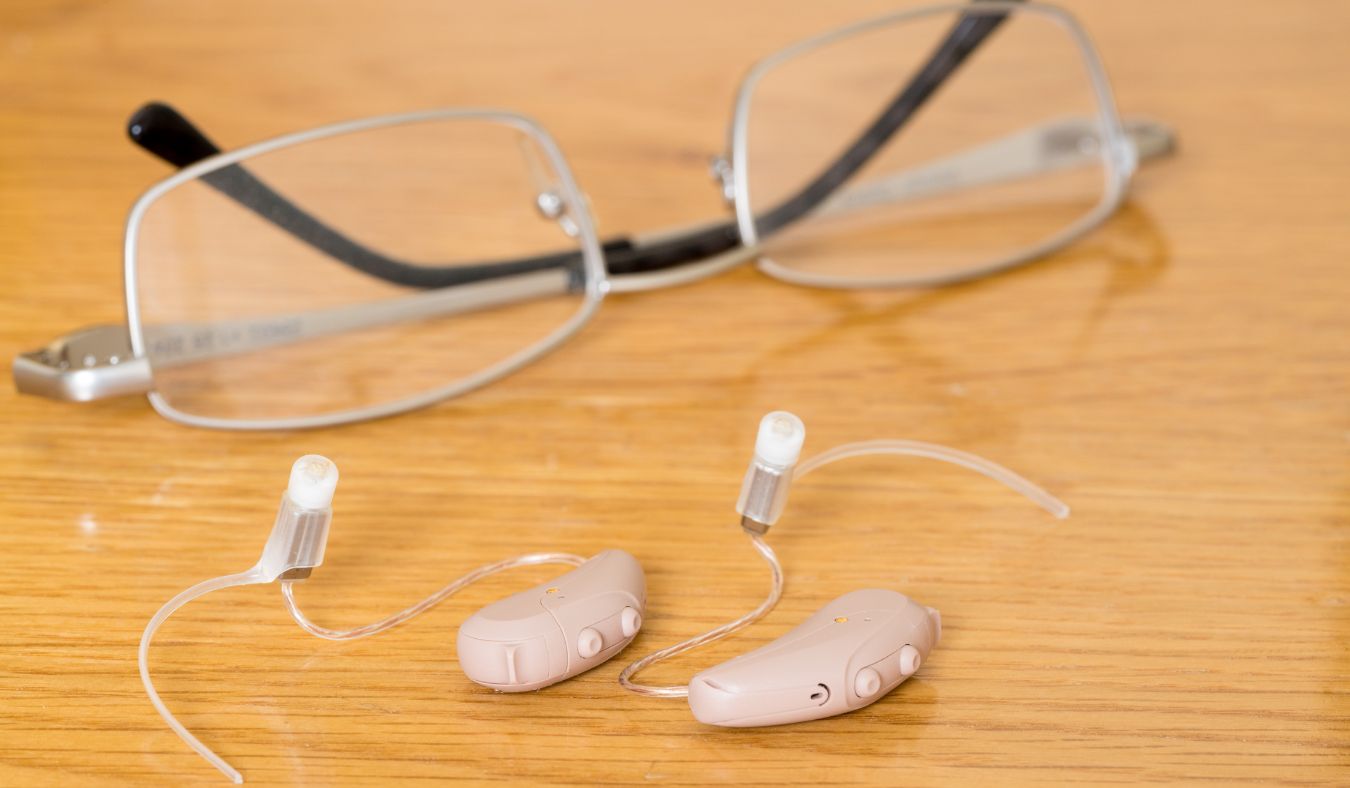The Impact of Hearing Aid Design on Wearer Comfort
When you’re choosing hearing aids, it’s easy to focus entirely

By: admin | January 31, 2024
A balanced diet is key to maintaining overall health, but have you ever thought about how it affects your hearing? It’s true, certain nutrients can support your hearing health. This might seem surprising, but when you think about the intricate workings of our auditory system, it starts to make sense. Our auditory system relies on various elements to function properly, many of which are affected by the nutrients we consume. So, learning how specific nutrients contribute to healthy hearing can be a helpful tool in preserving and enhancing this vital sense.
You might be wondering, how does my diet impact my hearing health? The answer is quite simple. Certain foods are packed with nutrients that support the health of your ears and can even help prevent hearing loss.
Key nutrients that contribute to hearing health include potassium, folic acid, magnesium and zinc. Foods rich in these nutrients like bananas, spinach, nuts and seeds are not only tasty but also give a nutritional boost for your ears. So, when you’re planning your meals, remember to include these nutrient-packed foods.
It’s also worth mentioning noise-induced hearing loss, another significant factor affecting our hearing health. This happens when loud noises damage the delicate structures within our ears. While nutrition plays a crucial role in maintaining good ear health, it’s equally important to protect our ears from excessive noise.
Let’s now shift our focus to antioxidants. These powerful compounds have a unique role in protecting your ears. Antioxidants combat harmful substances known as free radicals in your body. In doing so, they can help prevent damage to your ears, which is crucial for maintaining good hearing health. Foods rich in antioxidants, like berries and dark chocolate, are not just delicious but also beneficial for your ears!
Next, let’s discuss another vital nutrient for ear health – Omega-3 fatty acids. You might already be familiar with these essential fats for their heart-health benefits. But, they also play a significant role in maintaining good hearing health.
Omega-3 fatty acids help improve blood flow to the inner ear. This is important because the inner ear is highly sensitive and relies on a good blood supply to function properly. By including foods rich in Omega-3s like fish, flaxseeds and walnuts in your diet, you can help ensure your ears are getting the nutrients they need.
Research has shown that people who regularly consume Omega-3 rich foods are less likely to experience age-related hearing loss. So, incorporating these healthy fats into your meals can not only boost your overall health but also safeguard your hearing in the long run.
Now, let’s talk about B vitamins. These vital nutrients play a significant role in promoting good hearing. Just as a car engine needs oil to run smoothly, your ears need B vitamins to function properly.
B vitamins, especially B12 and folate, are essential for maintaining the health of your nerve cells, including those in your ears. A deficiency in these nutrients can lead to problems with your hearing. So, by including foods rich in B vitamins like lean meats, eggs and leafy greens in your diet, you’re giving your ears the fuel they need to work at their best.
Now, let’s discuss magnesium. This essential mineral often doesn’t get the recognition it deserves when it comes to supporting hearing health. Magnesium plays a key role in preserving the health of the delicate hair cells in your inner ear, which are essential for hearing.
Let’s now focus on potassium, another essential mineral. This powerful mineral plays a significant role in maintaining your auditory health.
Potassium is responsible for regulating the fluid in your inner ear, which is vital for processing sounds. When potassium levels are too low, you may experience difficulties with hearing. So, keeping up with foods rich in potassium like bananas and oranges can help ensure optimal auditory health.
Next, let’s discuss zinc, another nutrient that is vital for your hearing health. This essential mineral plays a key role in maintaining the health of your ears and can even help ward off hearing loss. Zinc helps strengthen your immune system, which in turn helps prevent ear infections – a common cause of hearing loss.
Furthermore, zinc also aids in cell growth and healing, which is beneficial for the repair and maintenance of your auditory system. So, by incorporating zinc-rich foods like oysters, beef and lentils into your diet, you’re taking another step towards safeguarding your precious hearing health.
Making changes to your diet can be a powerful step towards boosting your hearing health. Including the right nutrients in your meals can have a significant impact on maintaining and even enhancing your auditory function.
Nutrients like potassium, folic acid, magnesium, zinc, antioxidants, Omega-3 fatty acids and B vitamins all play a vital role in supporting ear health. Ensuring you’re getting enough of these in your diet can help keep your hearing at its best.
So, when planning your meals, don’t forget to include foods rich in these nutrients. This simple dietary adjustment could go a long way in preserving and promoting the health of your ears. After all, good hearing is a key part of living life to the fullest!
While we often think of hydration in terms of overall health and wellbeing, it also plays a key role in maintaining healthy hearing. Our ears need adequate hydration to function properly. The fluids in our body help maintain the delicate balance in our inner ear which is essential for hearing.
Drinking plenty of water throughout the day helps keep these fluids balanced. Dehydration can lead to problems with your hearing, so it’s important to stay hydrated. So, don’t forget to drink up! Your ears will thank you.
Regular exercise is another important aspect of maintaining good hearing health. While it may not seem directly related to your ears, physical activity actually helps improve blood circulation, including to your ears. This increased blood flow helps keep the cells of your ears healthy and functioning properly.
Activities like walking, jogging, cycling or even dancing can help boost your circulation and contribute to good hearing health. So, don’t overlook regular exercise in your routine for the sake of your ears!
Regular exercise plays a pivotal role in maintaining overall wellness and positively impacting hearing health. Utilize the following tips to start including exercise in your daily routine:
Maintaining good hearing health doesn’t have to be complicated. It can be as simple as adding nutrient-dense foods to your everyday meals. This small step can go a long way in supporting the health of your ears and preventing hearing loss.
Here are some easy ways to incorporate nutrient-dense foods into your meals:
In your quest for optimal hearing health, you’ve taken an important first step by understanding the role of specific nutrients in supporting your auditory function. With this knowledge, you’re well on your way to making dietary choices that can help maintain and even enhance your hearing. But keep in mind, while diet is a key factor, comprehensive hearing health involves more than just what’s on your plate.
Audiologists are here to provide personalized advice and solutions tailored specifically for you. At Davis Audiology, we understand that every individual’s hearing needs are unique. That’s why we offer personalized consultations at our locations in Greenville (864) 810-6238, Simpsonville (864) 810-6238 and Spartanburg (864) 810-6238.
Don’t hesitate to reach out for more information or to schedule an appointment with our team of experienced professionals who are dedicated to helping you achieve the best possible outcome for your hearing health. Your ears deserve the best care possible – let us be part of your path towards optimal auditory wellness!
This article is for informational purposes only. Always consult your primary care physician or healthcare provider before making any changes to your diet or considering supplements. Personalized advice from a qualified medical professional is crucial, taking into account individual health conditions and medical histories.

When you’re choosing hearing aids, it’s easy to focus entirely
By: admin | October 20, 2025

Summer heat affects hearing aids differently than you might expect. When
By: admin | July 29, 2025

Music plays different roles in people’s lives; it motivates you
By: admin | June 20, 2025
